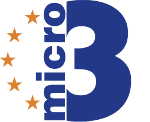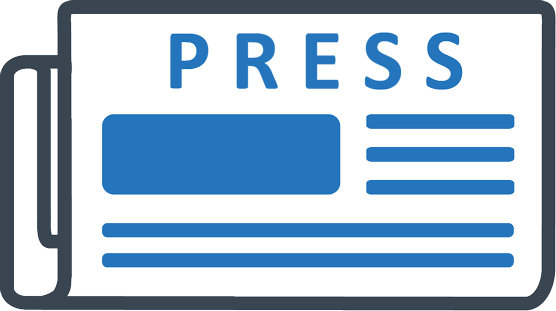- Home
- About
- OSD
- MyOSD
- Partners
- Work Packages
- WP 1Management & Coordination
- WP 2 (OSD)Ocean Sampling Day
- WP 3Oceanography & Environmental Data
- WP 4Standards and Interoperability
- WP 5Bioinformatics & Data Integration
- WP 6Exploring Ecosystems Biology
- WP 7Function and Biotechnology
- WP 8Intellectual Property (IP) Management for Marine Bioprospecting
- WP 9Dissemination & Outreach
- Public DeliverablesAll Micro B3's public deliverables
- Meetings
- Workshops
- Third Micro B3 Industry Expert Workshop
- Micro B3 Industry Expert Workshop
- Micro B3/OSD Analysis Workshop
- Micro B3 Stakeholder Workshop
- Micro B3 Summer School in Crete 2014
- Marine Metagenomics Bioinformatics
- Micro B3 Industry expert workshop
- EU-US Training 2013
- Micro B3 Statistics Training 2013
- MG4U Bioinformatics Training 2013
- Bioinformatics Training 2012
- EU-US Training 2012
MG4U Bioinformatics Training: Background
Rationale & Target Audience
The FP7 Coordination and Support Action Marine Genomics for Users (MG4U) offers dedicated bioinformatics training for young researchers who are on the way to shaping their personal career trajectories in marine genomics by developing multiple capacities and bioinformatics skills. The candidates are senior PhD students and junior post-docs with a solid background in any area of marine microbiology and/or ecological genomics research.
 Today, marine genomics knowledge leads to a wide range of biotechnological applications and is increasingly used in the management of natural and protected marine resources. Such applications largely depend on innovative bioinformatics approaches that efficiently exploit large-scale sequence data in an environmental context and make large-scale data on marine viral, bacterial, archaeal (and protists) genomes and metagenomes accessible for marine ecosystems biology. Moreover, new bioinformatics concepts include also the linking between oceanographic and molecular microbial research to integrate global marine data with research on microbial biodiversity and functions. In order to prepare the next generation of marine scientists to meet these new challenges and opportunities, MG4U will raise the general level of bioinformatics skills in the marine science community. In this course MG4U will provide young researchers with the basic knowledge for accessing and exploring large (meta)genomic data sets and train them in handling of such data. Furthermore, emerging bioinformatics concepts will be discussed and how they will be used in marine genomics research.
Today, marine genomics knowledge leads to a wide range of biotechnological applications and is increasingly used in the management of natural and protected marine resources. Such applications largely depend on innovative bioinformatics approaches that efficiently exploit large-scale sequence data in an environmental context and make large-scale data on marine viral, bacterial, archaeal (and protists) genomes and metagenomes accessible for marine ecosystems biology. Moreover, new bioinformatics concepts include also the linking between oceanographic and molecular microbial research to integrate global marine data with research on microbial biodiversity and functions. In order to prepare the next generation of marine scientists to meet these new challenges and opportunities, MG4U will raise the general level of bioinformatics skills in the marine science community. In this course MG4U will provide young researchers with the basic knowledge for accessing and exploring large (meta)genomic data sets and train them in handling of such data. Furthermore, emerging bioinformatics concepts will be discussed and how they will be used in marine genomics research.
Course Outline
The workshop is a pure computer-based training course. On the first three days, the trainees will be introduced to the basics of DNA sequence analysis in lectures, demonstrations, and hands-on sessions. They will learn how to deal with the corresponding software tools and how to interpret their results. In the practical parts, the course will focus on resources like sequence databases, Linux and the command line as a toolbox for daily bioinformatics work, and common software tools for sequence similarity searches, alignments, etc. The aim of this course module is to provide basic bioinformatics and computational skills and understanding for the handling and later annotation of biological sequence data generated by today’s sequencing technologies. On the last two days, the course will focus on aspects of the in silico annotation of (meta)genomic sequence data, including initial open reading frame prediction, functional predictions, and taxonomic assignments.
Location
The course will be held at the Max Planck Institute (MPI) for Marine Microbiology in Bremen, Germany and is taught by the company RIBOCON with contribution of expertise from the Microbial Genomics and Bioinformatics Research Group at MPI Bremen and invited external teachers.
Selection Criteria
- Match with target community description
- Relevance of the course for PhD or postdoctoral project
- Likelihood that the knowledge will be used after the course
- Balanced mix of participants with different research backgrounds, not more than one person per institute, equal gender distribution, etc.
Application & Timeline
Deadline for submission of applications is Monday, April 15, 2013. Applications will only be taken into account if they are submitted via the electronic application form.
Notification of participants: April 19, 2013
Participants have to confirm their participation by April 24, 2013. In case of cancellations the next one in the waiting list will be notified.
Costs
Course fees, 5 nights of accommodation, lunch on all course days, and the social event (guided city tour of Bremen plus joint dinner on day 4) are covered by the FP7 Coordination and Support Action "Marine Genomics for Users" (MG4U), number 266055.
Participants only have to cover travel costs and extra nights by their own!
We are looking forward to meeting you in Bremen!


